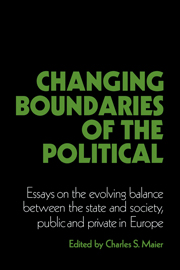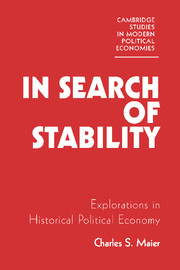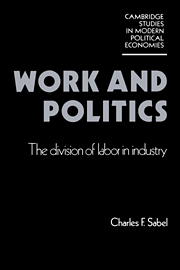3 results in Cambridge Studies in Modern Political Economies

Changing Boundaries of the Political
- Essays on the Evolving Balance between the State and Society, Public and Private in Europe
-
- Published online:
- 05 June 2012
- Print publication:
- 28 August 1987

In Search of Stability
- Explorations in Historical Political Economy
-
- Published online:
- 15 December 2009
- Print publication:
- 29 January 1988

Work and Politics
- The Division of Labour in Industry
-
- Published online:
- 13 October 2009
- Print publication:
- 30 July 1982

